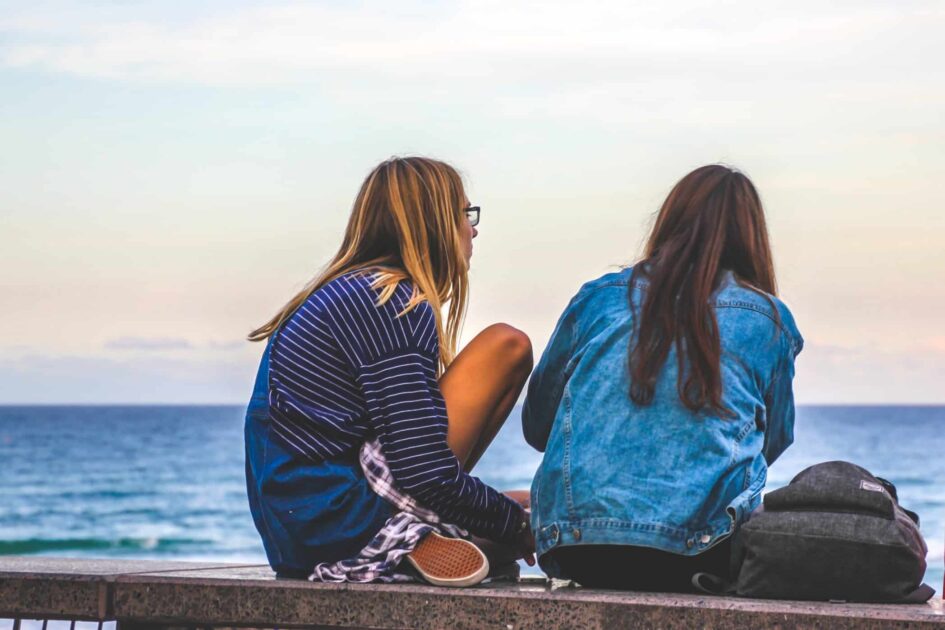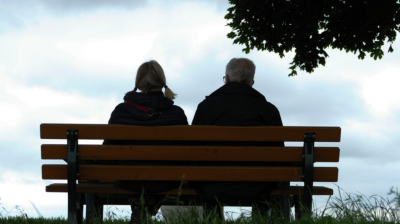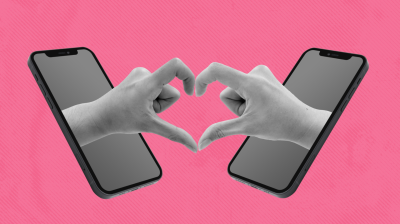How I dealt with a toxic friendship
Rían writes about what it’s like to have an unhealthy friendship, and why it’s important to look after your wellbeing

You’re standing on a street corner waiting on them to arrive. You know the chances they’ll show up are pretty unlikely. What excuse will it be a text this time? A blatant no-show? “Oh I forgot”, “I slept in”.. Or the usual case of being met with a blank wall of nothingness, as you stand in the cold, waiting on nobody to come, feeling frustrated, fooled and anxiety-ridden. You consider texting to confront them but you don’t want to cut your foot off of the eggshells you’re constantly walking on.
Unhealthy friendships
It’s often the case that the only kind of toxic relationship discussed tend to be romantic ones, but friendships can be just as damaging. Our friends are our chosen family, they are the supports that hold us up. But when those friendships become unhealthy or toxic, they become hard to discuss or even recognise. When you’re in a toxic friendship it’s hard to realise you’re actually in one.
Myself and Laura* (*not her real name) had been friends since our first days at school. In our teenage years we began to grow even closer. Despite the odd disagreement, on the outside we seemed to have a pretty normal relationship. But, when issues did arise Laura would turn into a different person, at the time I playfully dubbed it the ‘green eyed monster’. “Issues” being anything from an argument between her and her mother being taken out on me, to a calm discussion turning into a heated argument turning into name-calling, guilt-tripping and grudges she had kept against me being thrown in my face. This green-eyed monster was put down to maturity – or lack thereof. Not long after beginning secondary school it eventually resulted in us going our separate ways.
Rekindling our friendship
Flash forward a few years later and we’re back in touch. Laura was the closest friend I had and I hoped over time the green-eyed monster had disappeared. We picked up in what seemed like a better place. The past was not discussed apart from quick apologies and forward we moved. We hung out in town most weekends and on the outside everything seemed fine.
Toxic behaviour
To me our friendship felt like a tower of Jenga blocks which she controlled. One false move and everything could tumble down. I felt like I was constantly walking on eggshells. She made it clear that my social anxiety was a big inconvenience to her and that I was being a nuisance. In a healthy relationship of any kind you should be able to have an open conversation about issues you’re having without fear. In this one I couldn’t. The memory of what had happened on the past occasions when I had tried to do this were still there and I didn’t want to risk it. I felt like I had no control.
It’s hard to explain a complex and nuanced relationship in so few words. The effects of being in a relationship where the other person is constantly in control and you are ‘punished’ for challenging it, have definitely impacted my relationships since then. It’s something I’m still learning to overcome. I became so used to this dynamic it distorted my idea of what a healthy relationship should look like.
We arranged to meet up and I started reciting a conversation I’d rehearsed in my head many times over but, had been too scared to say outloud. She met me with her usual, sometimes cliche, responses – “I’ll change, I promise this won’t happen again.” I convinced myself this time it’ll be different. But, it wasn’t. So this time I sent her a long thought out message (because she refused to meet me in person).
The next morning I scroll through social media to find posts aimed at me.”I don’t know where we stand….I don’t want to throw what we have away,….. You’re my best friend..” accompanied by a happy photos from years ago.. In the past this sort of thing often worked, I’d apologise, she’d forgive me and we’d carry on. But this time I didn’t engage. Over the next couple of days more posts appear. They were strategically posted so she knew that I would see them. Soon I was being bombarded from left, right and centre. “You’re a backstabbing bitch… I hate you… I don’t need you I know who my real friends are, you’re not one of them…” accompanied by a lot of personal digs, grudges and a sprinkling of blackmail.
Doing what’s right for me
It’s hard to lose a person you were once so close to in your life, but it was the best thing I could’ve done for myself. For a long time I felt guilty, I grieved for the loss of our friendship and I worried about her. I fought with myself not to believe all of the things she had said about me. Did I even do the right thing? But, the proof was in how positively my life changed when she had left it.
I became more outgoing, putting myself forward for things she would’ve scoffed at if I had suggested them to her. I made new friends that treated me better, and pushed myself out of my comfort zone. I was happier because I didn’t have to look for somebody else’s permission or approval to do the things that I wanted to do.
Through my own experience, I’ve come to realise what a healthy relationship should look like. What we had was not it. A healthy relationship should lift both parties up, not hold them back.






